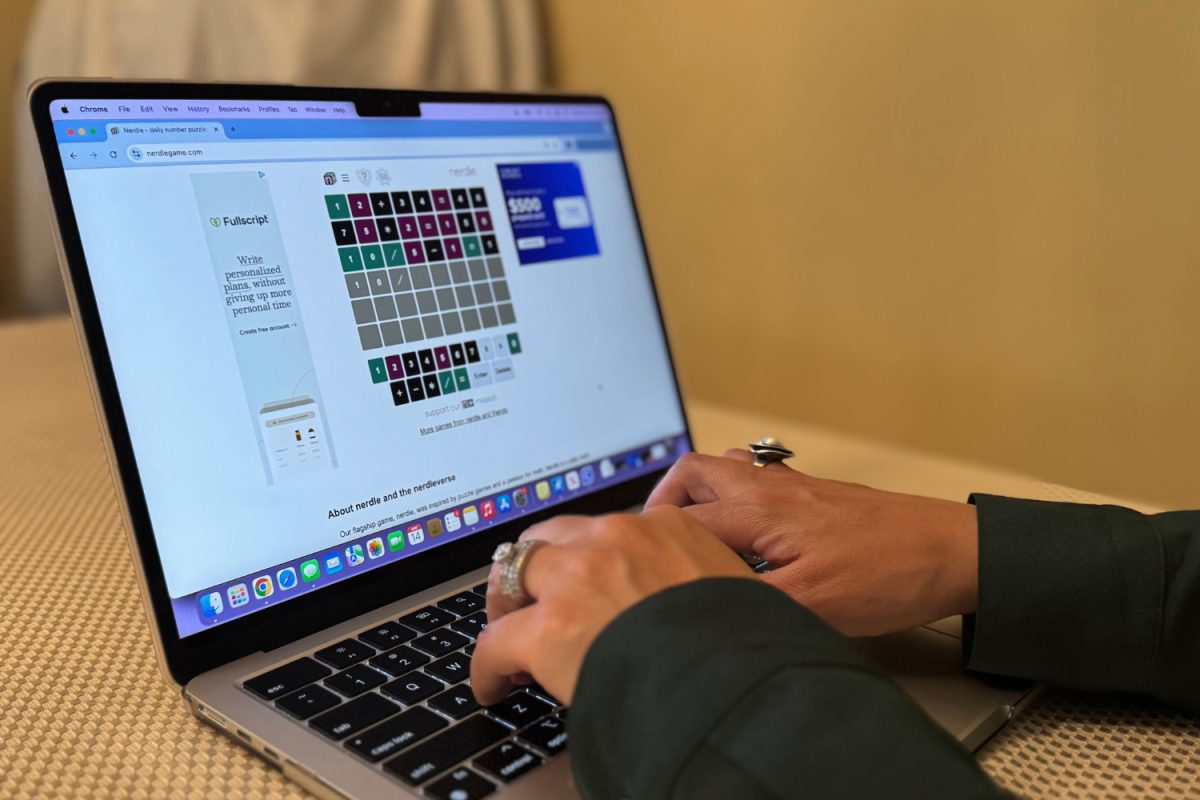Five green, gray, and yellow letters, rearranged again and again until success. The popular word game Wordle, publicly released by creator Josh Wardle in October 2021 and eventually bought by The New York Times a year later, has inspired several platforms to jump on the bandwagon, producing their own unique variants of the popular word puzzle game.
From online newspapers to generic websites, these versions add challenges and new twists to continue fostering players’ imagination and competitiveness.
In the original game, players have six tries to guess a five-letter word. Upon each guess, the game provides feedback to players, indicating whether the letters are correct and in their designated locations. Each day, the game resets with a new five-letter word waiting to be guessed by players.
“I like the length of Wordle and it is easy to fit in a busy schedule. It is a good way to socialize and compete to see who can get the word in less guesses,” said Dan Nguyen, a math teacher at Carlmont.
Since Wordle’s release, variants like Worldle, Nerdle, and Heardle have gained popularity among different audiences.
Worldle
Worldle, for example, adds a geographical twist to the original Wordle game. As opposed to guessing a word, players are tasked with identifying a country by its outline. After each attempt, the game will uncover the distance, direction, and proximity between the guess and the target country.
“I actually see a lot of students playing Worldle on their Chromebooks. I personally am not the best at geography, but the game seems enjoyable for those who are good at countries and where they are located,” said Abby Maher, a sophomore at Carlmont and an occasional player of Wordle and its variants.
Contrary to what one would believe, the growth of Worldle came as a surprise to French game developer Antone Teuf. Two weeks after its release, the game reached over half a million users in one day, according to Forbes.
In addition, on Feb. 14, 2022, the term “Worldle” was No. 4 on Google Trends, gaining more than 200,000 searches in just the United States.
“I feel like the growth should have been expected, especially seeing the original Wordle get so popular in just a few months,” said Sara Afaghi, a freshman at Notre Dame High School and a Wordle player.
Although this game is open to everyone, it is primarily catered to and played by people who enjoy geography and world traveling.
“It’s really helpful for history class and memorization. It also keeps you entertained while teaching you about different countries and where they are located,” Afaghi said.
Nerdle
Inspired by the success of Wordle, British data scientist Richard Mann created Nerdle — an equivalent to Wordle but with numbers instead.
The game includes eight boxes and six attempts to guess an equation. Similar to Wordle, Nerdle tells players whether their guesses are in the correct location or present somewhere else in the equation.
Working with his son, daughter, and a few friends, Mann was able to go from concept to launch in just three days.
“I tried it with a couple of friends, and then we created the game in a matter of days. It was phenomenally successful in the first few weeks,” Mann said in an interview with The Tech Business Podcast.
Since its launch, the game has gained popularity from its audience, primarily those who enjoy or teach math. In just a few weeks after public release, the game had more than a million players across several countries.
“One of the most rewarding things we’ve done as Nerdle is to see teachers play our game in the classroom with their pupils. It’s great to see them taking a few minutes trying to solve a little puzzle and then the smiles and the cheering when they manage to succeed,” Mann said.
Despite the popularity, however, many Wordle players like Nguyen are unaware of variants like Nerdle.
“I never knew about Nerdle, but it would be enjoyable if it could be played like Wordle. Also, there would need to be a strategy component and it would have to be completed by people who aren’t math people,” Nguyen said.
Heardle
Heardle, often called “the music version of Wordle,” offers players a chance to test their music knowledge with mystery songs.
“Heardle is one of my favorites because it allows me to see how much I know about different genres of music and music artists,” Maher said.
In the game, a short audio clip is played from a song and players are given a chance to guess the title. If the guess is wrong or the round is skipped, a slightly longer portion of the song is played. If the song is not guessed in six tries, it is revealed.
In addition, the game includes different categories such as music from the 1980s, rock music, and more.
“There are so many different kinds that I can pick whichever I am in the mood for at that time,” Maher said.
Whether it is guessing a country, a math sequence, or a song, each game shares two commonalities with the typical Wordle game: it restarts daily, allowing users to match or improve their previous score, and it gives players six tries to reach the desired answer.
“The games follow a common theme, and I like how the variants are so different but similar to Wordle at the same time,” Maher said. “I like being able to rely on having a new setup to guess each day.”











